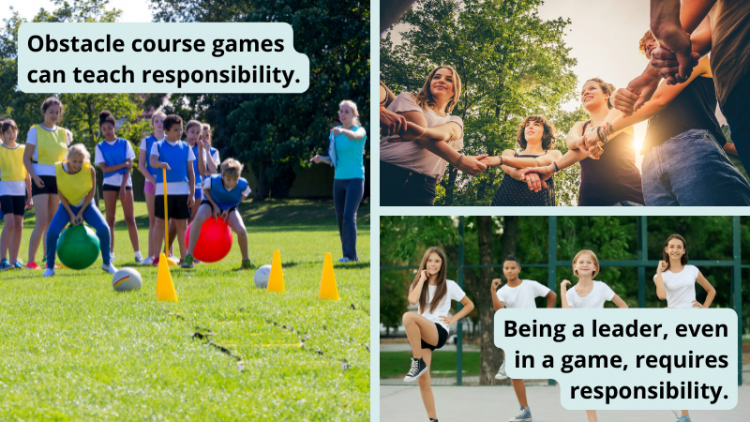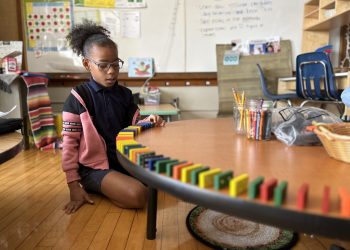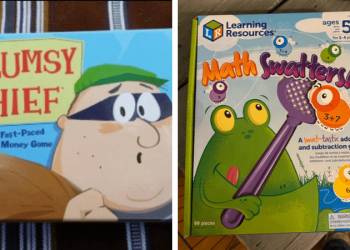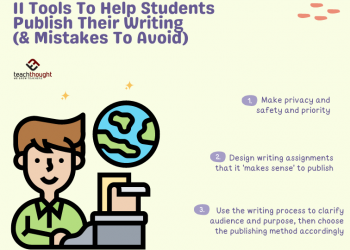Responsibility isn’t something students develop overnight. It takes lots of practice to show self-control when things don’t go our way, to be accountable for our decisions, to finish what we start, and to keep trying even when we want to give up. Our middle and high school students need lots of opportunities to practice (and fail!) at these skills in order to become responsible young adults. Research confirms what we’ve known forever. CASEL, the Collaborative for Academic, Social, and Emotional Learning reports that not only does this type of social and emotional learning build lifelong, future-ready skills, but it also improves academic achievement and supports teen’s overall well-being.
With that in mind, here are five super-fun games that teach responsibility that your older students will love revisiting.
Game 1: You’re in Charge
How to play: Sometimes the simplest games are the most memorable and powerful. The rules of this game are simple. Plan for a period of time during the day (or class period) where a student becomes class leader. That student is now “in charge.” Obviously, you’ll need to set up some rules and guidelines first. For instance, “you can’t leave the classroom,” or “all normal school rules must be followed.” In fact, this game works best when the student leader has a specific lesson to teach the class. Rotate through students each day and plan for time to reflect. Students will have a lot to say about their peers leadership skills. And they’ll learn a lot about how hard it can be to run a group of people.
How it teaches responsibility: A big part of learning to be responsible is learning to take ownership over your actions. Even for adults, it can be frustrating when we feel like our leadership isn’t making good decisions. Teens may struggle with feelings of frustration or even struggle to follow their peers instructions, but this is a teachable moment for them. As the teacher, we can model appropriate behavior for dealing with frustration and how to appropriately voice those feelings. We can help the student leaders communicate clearly with their classmates. And, when we reflect with the class, we can help them recognize what qualities the best classroom leaders seemed to possess.
Game 2: Follow My Lead Drawing Game
How to play: Place students in pairs, one facing you and the other facing in the opposite direction with a piece of paper and a pencil. Next, tell your students that you are going to show a simple picture to the students facing you. After they’ve had 15 seconds to look at it, you will hide it (but don’t erase it). Once you say “go,” they’ll have one minute to describe the image to their partner in as much detail as possible. At the end of the minute, the drawing students will bring their pictures to the front of the room to compare them to the original. The drawings that are most similar can be deemed the “winners.” The process then repeats with the partners switching spots.
(Quick tip: It works best to choose pictures that are simple to draw but have several details. For example, a basic house with a chimney, three windows, and a tree with apples.)
How it teaches responsibility: Although a lot of fun, this game can be frustrating, and that’s sort of the point. It can be challenging to try to describe something from memory. It can also be challenging to try to interpret what someone is describing to you and then draw it. Both team members have a responsibility to the other that they must try to meet. You can really enhance this concept by adding a reflection activity to the end of the game. Ask your students how it felt to be the describer or the drawer. Have them explain what frustrations they felt. Discuss appropriate ways to deal with any feelings of nervousness or fear that come from not doing a good job in either role.
Game 3: Flip the Blanket
How to play: Arrange students in small groups or even pairs, depending upon how many blankets you have available (beach towels work as well for pairs or groups of three). Tell all the students to stand on their blanket. Your students must then work together to flip the blanket upside down without having any member of their team step off of it onto the floor. If they do, they must start over again. You can add difficulty by having more students stand on one big blanket, making it a timed game, or even making it a rule that they’re not allowed to use their voices to communicate with each other.
How it develops responsibility: While this game is most often recommended as a way to encourage teamwork, it encourages responsibility as well. Students need to be honest about staying on their blanket. They need to communicate with each other about their ideas, accepting when one doesn’t work out or advocating for themselves or a teammate if a good idea isn’t being heard. Take time to have a conversation afterward to emphasize how students used responsible behavior and decision-making throughout the game.
Game 4: Role-Playing
How to play: Perhaps the most direct approach, role-playing gives students the opportunity to talk through real scenarios they might find themselves in. Make it a game by first breaking students into groups. Next, give each group a different scenario in which responsibility is key. After giving them several minutes to prepare, have students act out their scenarios for their classmates. Some suggestions may include:
- One of Stella’s chores is to feed her dog every morning and every evening. But two evenings this week, Stella forgot to feed the dog because her friends texted her and asked her to facetime with her. When she asks for her allowance, her father tells her he’s only giving her half because of this. She thinks that is unfair. Her father explains his reasoning.
- While sitting at lunch, one of Sunny’s friends starts spreading a rumor about another friend who isn’t there. She’s pretty sure it isn’t true and knows they would be embarrassed if they found out, but she also knows that her friends might tease her if she tells them to stop. There’s a good chance nothing bad will happen if Sunny does nothing. What should she do?
- The teacher has asked the class to come up with rules that everyone should follow to make the classroom a nice place to be. The teacher breaks the students into groups to discuss options and then report back to the whole class what rules they think should be put in place. Jamal is placed in a group with Madison and Micah. Madison and Micah start making rules that don’t make sense and won’t make the class a positive learning environment. Jamal knows that while his classmates might laugh when they hear the silly rules, their teacher will be disappointed in them for not taking the assignment seriously. What should Jamal do?
- Farhad really thought he wanted to play lacrosse this school year, so his dad signed him up for the team. But he isn’t very good and his teammates occasionally give him a hard time about it. He tells his dad he wants to quit, but his dad says he has to finish out the season. Farhad and his dad each explain their reasoning.
- Sarah, Logan, and Zeke are on a team playing a game in class. They lose, but they really believe it’s because the teacher didn’t follow the rules and showed favoritism to the other teams. They go to talk to the teacher after class.
How it teaches responsibility: Because the scenarios can be directly tied to responsible decision-making, the conversation around each role-play is where the magic happens. Be prepared to discuss different opinions. (For example, is Stella’s losing half her allowance a fair punishment? Some students might say yes, others might say no.) The important part of the discussion is to highlight what responsibility looks like for children their age. Did the person in each scenario show self-control when things didn’t go their way? Were they accountable for their decisions and did they accept the consequences that came with them? Did they finish what they started and keep trying even when they wanted to give up? These are the cornerstones of what makes someone responsible.
Game 5: Compass Walk
How to play: Put students in pairs (or for a bit more of a challenge, groups of three or four). Give all but one group member blindfolds. Then, the group member who can see must guide their teammates through a series of simple challenges. Some ideas might include:
- Walking to the end of a hallway and back while avoiding simple obstacles like cones or chairs.
- Stepping over, in, or around small obstacles like Hula-Hoops, yard sticks, or trash cans.
- Walking to a specific chair and sitting in it, but not any of the others nearby.
How it teaches responsibility: Students must be responsible regardless of the role they play in this game. For the blindfolded student, they are responsible for listening carefully. They must stay calm if they don’t understand the directions and bump into something. If confused, they have to ask for help. For the student giving directions, most importantly they must be responsible for the safety of their partner. They must communicate clearly. And they must be patient when their partner doesn’t do what they think they’ve told them to do. This is also a great game for discussing what happens when people don’t behave responsibly. Part of being responsibility is being aware of how the people relying on you feel.
Playing games with our older students can feel like a bit of a risk. Classroom time is valuable and we all want to spend it wisely. But there is plenty of evidence and research to support just how important building students’ sense of personal responsibility is not just for their social-emotional learning, but for their academic learning as well. So feel good about playing a responsibility game with your class. Not only are you letting your middle and high school students revisit their childhood for a bit, you’re also building skills that will serve them well for the rest of their lives.
For more information about the importance of social-emotional learning, visit the CASEL website.
Source by www.weareteachers.com










